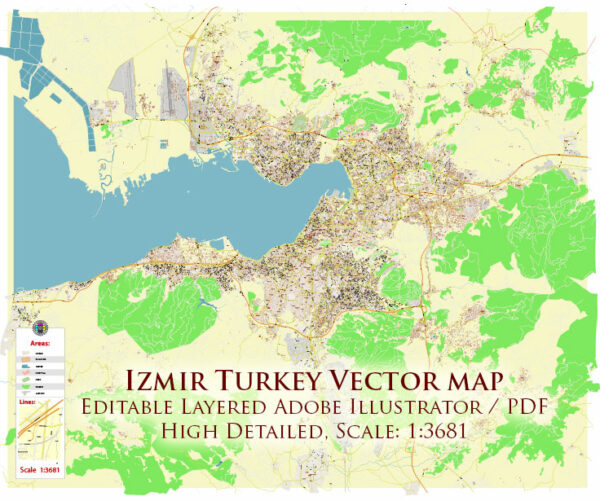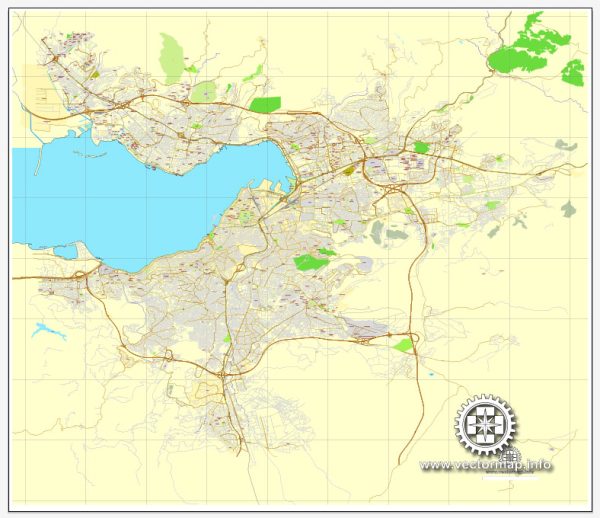Izmir, historically known as Smyrna, is a vibrant and cosmopolitan city located on the western coast of Turkey. It is the third-largest city in the country, after Istanbul and Ankara, and serves as the capital of the Izmir Province. The city is a major economic and cultural hub, renowned for its rich history, modern infrastructure, and picturesque coastal landscapes.
Geography: Izmir is situated along the Aegean Sea, offering stunning views of the coastline and the nearby islands. The city is surrounded by hills and mountains, creating a diverse topography that adds to its scenic beauty.
History: The history of Izmir dates back thousands of years, with evidence of human settlement in the area since the 3rd millennium BCE. Throughout its long history, the city has been under the rule of various civilizations, including the Greeks, Romans, Byzantines, and Ottomans. Each of these cultures has left its mark on Izmir, contributing to its unique blend of architectural styles and cultural influences.
Landmarks and Attractions:
- Agora of Smyrna: The ancient agora is a well-preserved archaeological site showcasing the remains of a Roman market and social center.
- Kadifekale (Velvet Castle): Situated on a hill, Kadifekale offers panoramic views of the city and the Aegean Sea. The castle has a rich history and was used by various civilizations throughout the centuries.
- Clock Tower (Saat Kulesi): Located in Konak Square, the clock tower is one of Izmir’s iconic landmarks and a popular meeting point. It was built in 1901 to commemorate the 25th anniversary of Sultan Abdulhamid II’s accession to the throne.
- Alsancak: This district is known for its lively atmosphere, with numerous cafes, restaurants, and shops lining the streets. It’s a popular destination for both locals and tourists, especially in the evening.
- Konak Pier: A historical building that has been transformed into a modern shopping and entertainment complex, offering a blend of the old and the new.
Culture: Izmir is a melting pot of cultures, and this is reflected in its diverse culinary scene, vibrant arts community, and numerous festivals and events. The city hosts cultural events throughout the year, celebrating music, literature, and the arts.
Economy: As a major economic center, Izmir plays a crucial role in Turkey’s economy. The city is known for its port, which is one of the largest and busiest in the country. Industries such as manufacturing, trade, and services contribute significantly to Izmir’s economic vitality.
Transportation: Izmir is well-connected by air, sea, and land. The Adnan Menderes Airport serves as the main gateway to the city, and there are also bus and train services linking Izmir to other parts of Turkey.
Overall, Izmir is a dynamic city that seamlessly combines its rich history with modern amenities, making it a fascinating destination for both history enthusiasts and those seeking a lively urban experience.



 Author: Kirill Shrayber, Ph.D. FRGS
Author: Kirill Shrayber, Ph.D. FRGS